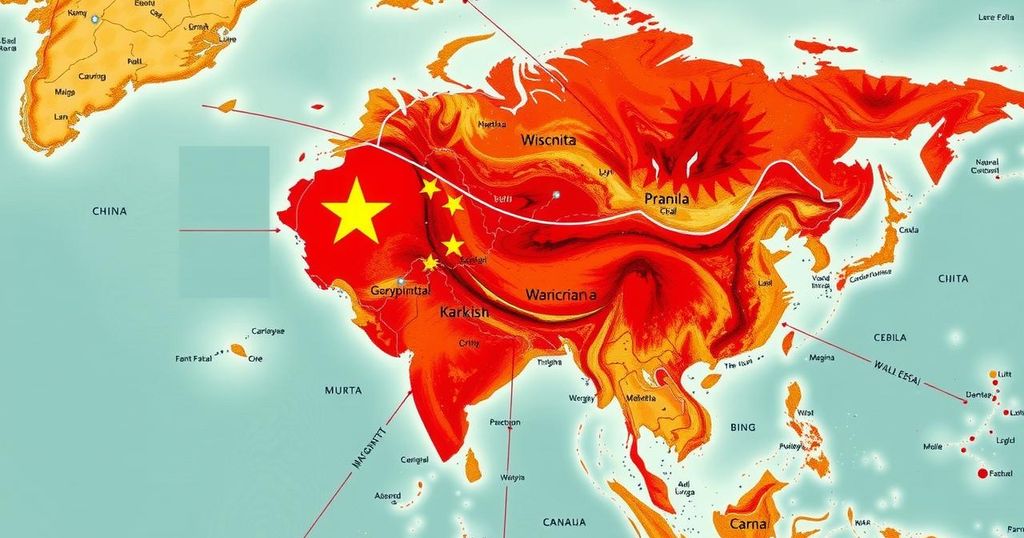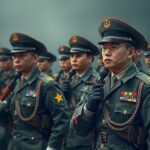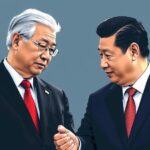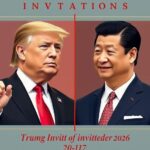Politics
ANDREW, ASIA, AU, AUSTRALIA, BEIJING, CHINA, CHINESE COMMUNIST PARTY, COMMUNIST PARTY, CUBA, DEFENSE, GEOPOLITICS, GERMAN MARSHALL FUND, MAO, MAO ZEDONG, MARE, MAREIKE OHLBERG, MEXICO, MILITARY, NATIONAL SECURITY, NORTH AMERICA, OCEANIA, OHLBERG, PEOPLE ' S REPUBLIC OF CHINA, PRINCE ANDREW, TAIWAN, TIBET, UF, UFWD, US, US-CHINA RELATIONS, XI, XI ( JINPING, XINJIANG, YANG TENGBO
Dante Raeburn
Understanding the United Front Work Department: China’s Tool for Global Influence
The United Front Work Department is a pivotal aspect of China’s foreign influence strategy, drawing attention for its potential connections to espionage. While it seeks to bolster pro-Communist sentiments among overseas Chinese, allegations of interference have led to increased scrutiny from Western nations. This dynamic poses challenges in balancing engagement with security concerns and raises questions regarding the implications for ethnic Chinese communities abroad.
The United Front Work Department (UFWD) serves as a prominent tool of influence for the People’s Republic of China and is increasingly drawing scrutiny from Western nations. Its origins date back to Mao Zedong’s era, where it played a vital role in the Communist Party’s success during the Chinese Civil War. Under President Xi Jinping, the UFWD has regained focus, targeting not only domestic support but also aiming to sway overseas Chinese communities towards the Party’s ideals. Allegations of espionage and foreign interference complicate its operations, as seen in recent controversies involving individuals like Yang Tengbo, accused of leveraging connections for state interests.
Despite its public outreach efforts, the opaque nature of its activities has sparked apprehension. The UFWD not only seeks to inhibit dissent among the Chinese diaspora but also aims to dictate narratives related to sensitive topics like Tibet, Xinjiang, and Taiwan. This strategy of influence encompasses a spectrum beyond espionage; it includes mobilizing overseas Chinese in support of the Communist Party’s policies. However, as investigations in the West reveal potential connections to espionage, the line between influence and illegal operations remains blurred.
Such activities have incited legislative responses in countries like the United States and Australia, resulting in new laws aimed at curbing foreign interference. The West’s increasing vigilance reflects a growing awareness of the implications of the UFWD’s reach. China has firmly denied all allegations of espionage, asserting that accusations harm bilateral relations. The complexities of addressing this challenge lie in managing national security without fostering discrimination against ethnic Chinese communities.
The United Front Work Department (UFWD) represents one of China’s strategic instruments for influence, rooted in the Marxist doctrine promoted by Mao Zedong. Originally designed to build coalitions within China, its focus has shifted under Xi Jinping to engage and mobilize overseas Chinese populations. There are significant concerns regarding its role in espionage and foreign interference, frequently cited in the context of Western investigations into Chinese influence operations. Recent allegations against various individuals linked with the UFWD highlight the complexity of its dual role as a promoter of Chinese state interests and as a potential vehicle for espionage.
In summary, the United Front Work Department emerges as a significant yet controversial actor in China’s efforts to extend its influence globally, particularly among overseas Chinese communities. While it promotes a narrative supportive of the Communist Party, its entanglement with espionage allegations complicates its reputation and effectiveness. Western governments are increasingly challenged to navigate the fine line between legitimate engagement with ethnic communities and safeguarding national security.
Original Source: www.bbc.com








Post Comment